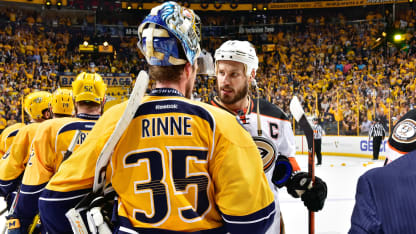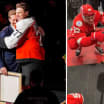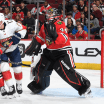"The (power play) story was the very thing we talked about right off the bat," Payne said. "The entry and the possession entry on the power play was going to be extremely difficult. Nashville putting numbers across the line and challenging that entry forced Anaheim into having to do a lot of things just to get the puck into the zone.
"I thought when [the Ducks] did, or did it from winning faceoffs, they had some decent zone time. Even [Monday] night, they looked to try to spread the Nashville penalty kill out against their pressure. But again, when you're spreading your power play out, you're a long way from the net. Now anything to the net doesn't have that second-chance opportunity."
The Ducks ran into some of the same familiar obstacles that the Los Angeles Kings faced against the Predators in the regular season when Payne was an assistant in Los Angeles, he said.
"I've looked at this penalty kill a number of times," Payne said. "It turns out the difficulties we had, the difficulties now Chicago, St. Louis and Anaheim have had, it turns out to be a real strength of their PK."
The difference in Game 6 came just after the Predators penalty kill in the third period, leading to the game-winning goal right after the successful kill.
"If you look at the winning goal of the series, it was a challenged entry," Payne said. "(Ryan) Kesler, I think, had the puck, tried to make a play entering the zone with possession.
"Nashville, with numbers across the line, stops the play turns the puck over and heads up ice. It didn't turn out to be a shorthanded goal, but it was virtually a penalty kill structure that led to that scoring chance that gave them the lead. It ended up being the difference in that late-game moment that turned the series in Nashville's favor."
Payne thought Ducks captain Ryan Getzlaf took charge in Game 6. He also praised young forwards Ondrej Kase and Chris Wagner, and the impressive development of rookie defensemen Brandon Montour and Shea Theodore in the 2017 Stanley Cup Playoffs.
The lessons they've learned going deep into the postseason should pay dividends.
"That's what has to happen," Payne said. "The veteran guys have to carry their weight and win their matchups and young guys have to step into roles and situations they've never been in, in order to win the [Cup].
"Each step along the way is a learning process. You don't want to have to keep learning it. You want to eventually get over the hump. But there's a reason why you want to get in and make that a part of the evolution of your organization, because it's different than the regular season. It's different when you get into the playoffs. Now teams are going to find out the final round is different than the first three."


















